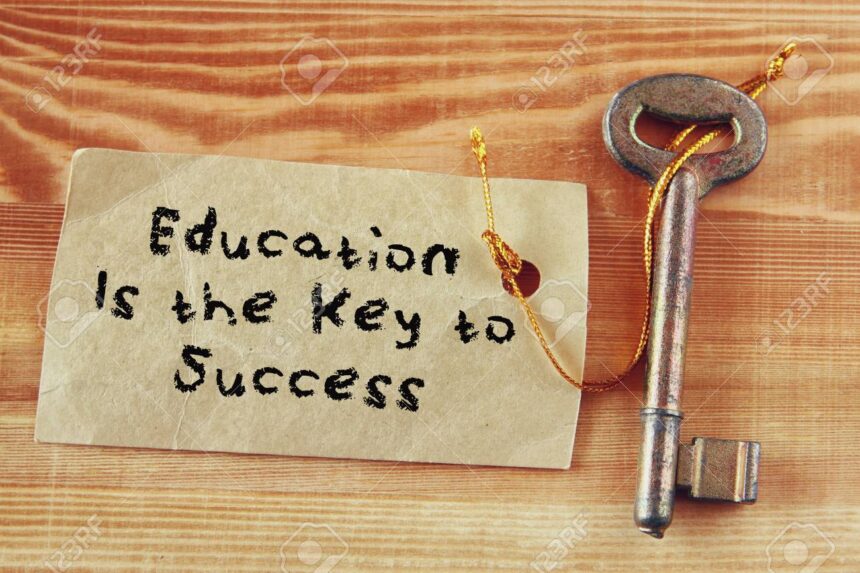By: Rosemary Balami
As I scrolled through my Facebook timeline one hot afternoon, I came across a picture which had the inscription, “education is the key but our leaders have changed the lock”. This, however, got me thinking deeply as to what this really means and whether or not this assertion is true. To some, it might be just a quote for laughter but no, this is deeper than we could ever even imagine it.
Nelson Mandela once said education is a powerful tool which can be used to change the world but is Ghana ready to challenge the status-quo? The importance of education to an individual, society and the world is a more reason why Quality Education has taken the number 4 slot of the United Nations Sustainable Development Goals (SDGs).
Ghana after 61 years of independence has witnessed a number of educational reforms and investments but the major problems facing the educational sector still stares into our faces as we look on unenthusiastically.
The address of the first President, Osagyefo Kwame Nkrumah to the legislative assembly a day before independence had education as its fulcrum; the driving force of the country’s development agenda. He envisioned an educational system that is designed to address the challenges we faced as a country in terms of technology, productivity and the economic potential of the country.
This explains the level of investment made by him in the education sector with the introduction of an accelerated development plan for education in 1951 and the education act of 1961. It is therefore not shocking that between 1951 and 1966, primary schools increased by 647.8%, secondary schools increased by 707.7% whiles one university which is the University of Cape Coast was added to the already existing two universities which are University of Ghana and the Kwame Nkrumah University of Science and Technology (KNUST). This coupled with other levels of education such as teacher training colleges, technical and second cycle institutions all saw tremendous improvement. To some Educational experts, education was geared towards solving the Ghanaian problem. Since then, there have been changes in our educational agenda, prominent among them are the 1987 and 2007 educational reforms.
A look at these two reforms seemed great but difficult to yield positive results in its entirety. In 1987, junior secondary School (JSS) and Senior Secondary School (SSS) replaced the “O” LEVEL and “A” LEVEL. This however sparked arguments as many experts believed both could have been used simultaneously. Also, 2007 saw the emergence of Junior High School (JHS) and Senior High School (SHS) to replace the former. Here, one can figure out the focus was on change of name and duration from 3-4 years and vice versa although policymakers included both technical, vocational and agriculture in an attempt to equip students with entrepreneurial skills. In the past decade, there has been a tremendous increase in education for children at the basic level with the introduction of free compulsory universal basic education in 1996 and the capitation grant for some academic years. Free SHS by the current government seeks to also increase access to secondary schools education.
Nonetheless, the educational sector still has lapsed after 61 years of independence. There has been a lot of educational success stories by the fastest growing economies in the world. For instance, South Korea which gained independence the same day as Ghana is evidently more advanced in every facet of their lives. If the focus of education after independence was to solve the challenges of the country then why is Ghana still lagging behind?
Unfortunately, Ghana continues to record a high rate of unemployment due to the fact that there are more graduates than the economy can absorb. This can, however, be traced to our overloaded curriculum and theoretical way of learning other than practical. Ghana’s educational system is more of theory than practical and so students graduate only to realize that the classroom work is different from the working field because much of our focus lies with writing and passing examinations.
Fast-forward to the issue of curriculum, why introduce Information Communication Technology (ICT) when most schools in rural Ghana do not have access to computers? A recent picture of a teacher trying to teach ICT with a drawing on a board specifically, the interface of Microsoft word went viral on social media and captured by international media houses like CNN and BBC. This broke my heart as after so many years of independence, we witness such a shameful situation.
One other daunting issue is the inequality that exists between the rural schools and the urban schools. Various stakeholders cannot continue to roll-out policies whiles turning a blindsight to the huge difference with these schools. A country that prides itself as the gateway to Africa yet it has students currently studying under trees. TV3 mission Ghana reports about the Muruchuso D/A Basic School where close to 90% of pupils lie on the bare floor to read and write. It continues to report of most schools in Kpandai, northern region where there is a high rate of teacher absenteeism, abandon school structures, lack of educational materials and a serious case where pupils are compelled to bring firewood from the house for the school feeding programme. But what do we see? All our leaders know best is to drive in luxurious cars and live expensive lifestyles. During elections, ballot boxes can reach these deprived communities whether rain or shine but when they assume power, development cannot even cross a street to these places.
This brings to the fore that, we have failed in terms of education. Yes, we have improved access, we have expanded infrastructure and have increased our spending in the education sector. But the end product has been an increase in the level of youth unemployment, sanitation problems, increase in corruption, and an upsurge in crime, a canker that has eaten into the moral fabric of our society.
Welcome to an educational system where we teach students to produce verbatim, instead of learning. An era where we teach students to pass examination rather than learning and so when you see students debating on social and traditional media about the essence of learning socatoa, pie chart, diffusion, and osmosis, don’t be perturbed but know that the system created is more theory than practical.
What we need from our leaders is not promises but policies and actions that seek to address all these educational needs by bridging the gap between the rural and urban schools. The more practicalized way of learning other than pen and paper. The rural communities must be invited to the table during developmental agenda the same way they do during elections. Every child deserves the right to quality and accessible education regardless of their location. Ghana must step up her game if truly we want to change the narrative and achieve the SDGs including goal 4 which is Quality Education.
After all is said and done, can we still stand by the assertion that, education is the key but our leaders changed the lock? Well, your guess may be as good as mine.









